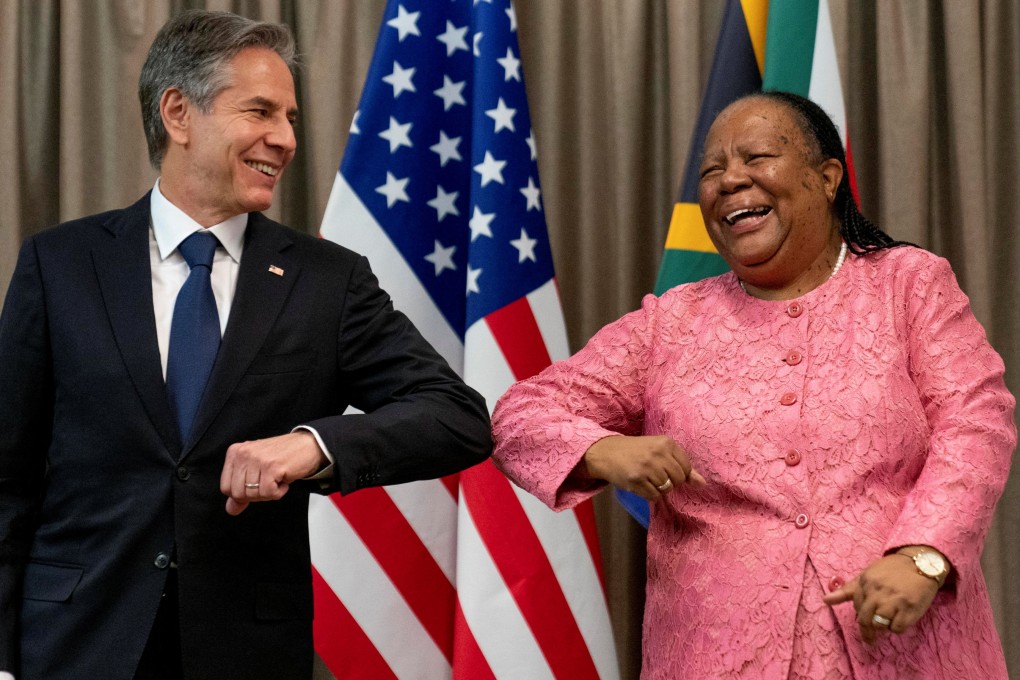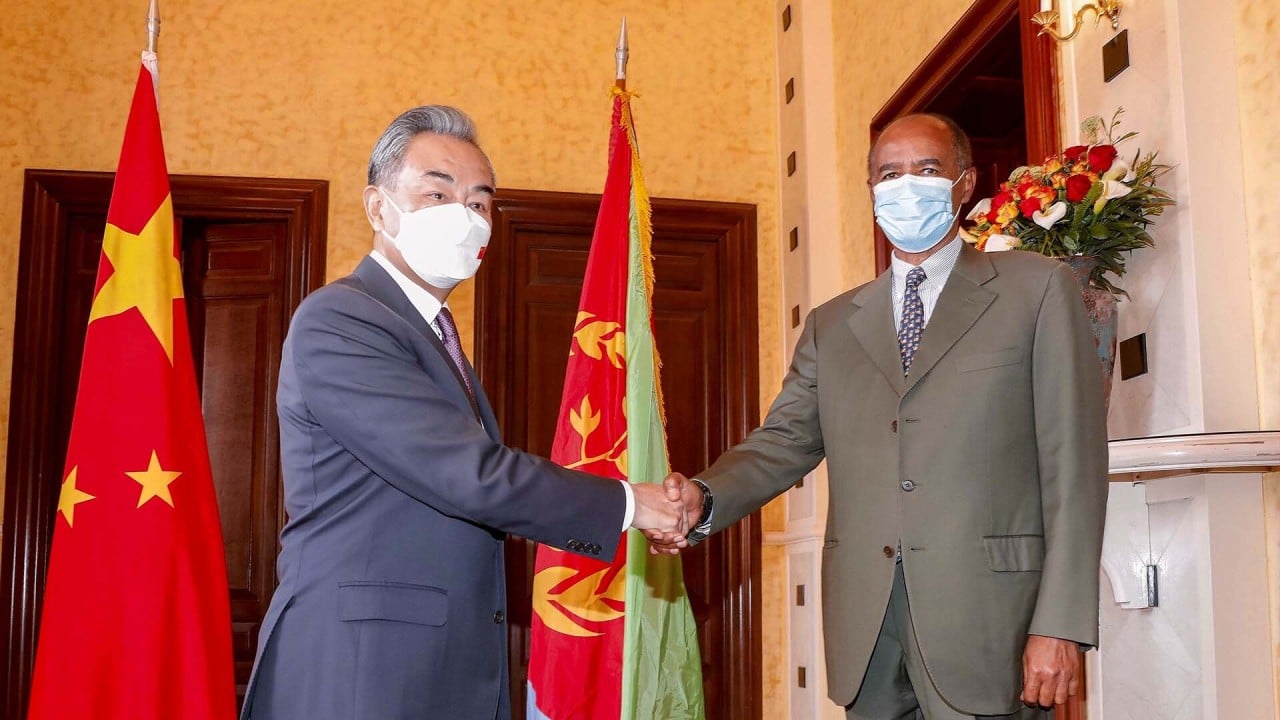In move to counter China and Russia, US says it has alternative for African nations
- ‘The right to make these choices belongs to Africans, and Africans alone,’ Antony Blinken says while launching new strategy for sub-Saharan Africa
- Trip seen as seeking support to punish Russia for invasion but South African minister accuses US of having different standards for Ukraine and Palestine

“The United States will not dictate Africa’s choices. Neither should anyone else,” Blinken said during a speech launching Washington’s new strategy for sub-Saharan Africa at the University of Pretoria, South Africa, on Monday.
“The right to make these choices belongs to Africans, and Africans alone,” he said.
Through the approach, Washington hopes its offerings will be more appealing than what China and Russia provide in Africa.
Blinken said the US Development Finance Corporation was putting US$300 million in financing towards developing, building and operating data centres across Africa. Further, the US has recently awarded a US$600 million contract to build an undersea telecommunications cable that will stretch more than 17,000km (10,500 miles) – from Southeast Asia through the Middle East and the Horn of Africa to Europe – delivering high-speed connections across the continents.
“After all, we’ve seen the consequences when international infrastructure deals are corrupt and coercive, when they’re poorly built or environmentally destructive, when they import or abuse workers or burden countries with crushing debts,” Blinken said in an apparent swipe at Beijing.
